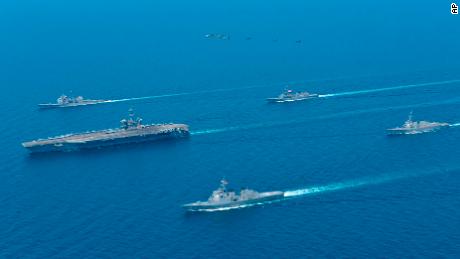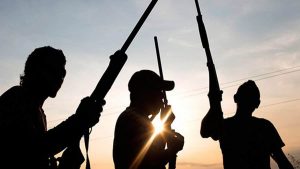Russia’s threat to retaliate against US-Japan naval exercises shows it’s getting jumpy, analysts say

The threat is just the latest salvo from Moscow, which has been angered by Japan’s support for Ukraine and its growing ties with NATO countries, and is turning up the heat in a long-running dispute over the sovereignty of islands captured by Soviet forces at the end of World War II.Russian Deputy Foreign Minister Igor Morgulov said Tuesday that US-Japan naval exercises were “potentially offensive in nature,” according to a report on Tuesday by Russian state news agency RIA-Novosti.”We see such actions by the Japanese side as a threat to the security of our country,” Morgulov said. “If such practices expand, Russia will take retaliatory measures in the interests of strengthening its defense capabilities.”However, he did not specify which US-Japan exercises he was talking about — nor did he make explicit what form Russia’s retaliation might take.Japan has not yet responded to Morgulov’s remarks and has not responded to a CNN request for comment.The US and Japanese navies last week wrapped up joint exercises in the East China Sea and Philippine Sea headlined by the USS Abraham Lincoln Carrier Strike Group.Earlier in the month, the Abraham Lincoln led similar joint drills in the Sea of Japan, upon which Russia has a lengthy shoreline.According to the US Navy, the US and Japan routinely hold joint naval exercises in the Indo-Pacific to “maintain stability in a free and open Indo-Pacific region.” A lingering World War II disputeTensions between Tokyo and Moscow have been increasing, fueled by Japan’s support of Ukraine after Russia’s invasion of its western neighbor and by the “Russia has been stepping up military activities in the vicinity of Japan probably to demonstrate its ability to operate in the Far East even in the midst of invading Ukraine,” Mori said.Thompson says the Russian threats go back further, noting over the past several years flights by nuclear-capable Russian bombers near Japanese airspace and cooperation with China in aviation and naval exercises, including a joint Russian-Chinese naval circumnavigation of Japan’s main island of Honshu in 2021.”This is Japan responding to dynamics that began with the strengthening of Russia-China military cooperation,” Thompson said.”That’s the change that’s driving Japanese defense planning and political resourcing, rather than a direct response to these latest Russian threats,” he said. “If anything it validates Japan’s strategy to enhance its own ability to deter the use of military force against it.”







